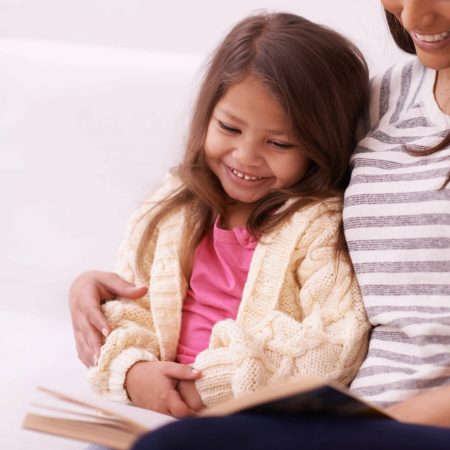Children must understand the meaning of a word to help them understand the world around them and stories they read.

Kindergarten students should be able to figure out the meaning of an unknown word in a Kindergarten level book by looking for clues in the story, the pictures, or the word parts.


Reading aloud to your child and having your child read books on their own is the best way to increase their vocabulary. Books provide words they won’t encounter in everyday conversations as the language of books is more complete and formal than talking. A great story also provides context and illustrations for learning a new word.
Become aware of the language you use with your child. Often parents will simplify how they speak hoping it will help their child more easily understand what they mean. Instead, aim to use “rich vocabulary,” use interesting words and phrases and bold descriptive words. Give your child every advantage and be intentional by being more specific with the words you choose. Your effort will expand their world of knowledge!
Instead of, “Can you give me that?”
Try: “Could you hand me the plaid dish towel? The one with fringe on the end.”
A child’s vocabulary is mostly made up from the exact words their parents use at home. “New research suggests we may be wildly underestimating their brainpower. Children whose parents used complex language were found to have significantly higher IQs (a formidable 40 points) than children whose parents did not — suggesting that young brains become wired early for complex thought.” GreatSchools.com “Surprising Secrets to School Success, 2018
When reading aloud to a child there will be words that your child does not understand. Children usually don’t tell us because they are unaware of what they do not know. After reading a page, make sure to ask your child if they understood a word that appeared tricky or challenging. Explain what the word means in a “kid-friendly” way, in words they understand, and look for clues in the pictures that will help your child understand.
For example, “Do you know what terrified means? Look at the boy’s face – he’s very scared! Terrified means to be very afraid. Can you say ‘terrified’? Have you ever been terrified of something?”
When you are pointing out new words to your child, make sure they tell you how they understand the meaning of that word. Can they connect this new word to something they have experienced?
“Can you tell me what the word ‘vivid’ means from the story? Have you ever seen something that was ‘vivid’?”
Ask your child questions about what they’re interested in, their toys, their favorite characters, their favorite books; make eye contact and listen closely as they speak. Take turns when talking with them. As parents, we sometimes can get in a habit of giving instructions but not engaging in conversations with our kids. Having meaningful discussions at home helps children develop their vocabulary by allowing them to incorporate the new words they have learned into their conversations.

These Kindergarten vocabulary words introduce and reinforce high-utility or commonly used words that will help a student’s reading success. Students should aim to understand the meaning of these words, not read or spell them at this age.

Use vocabulary games to help build kids’ fluency skills. This will make your child a stronger and faster reader.

Home Reading Helper is a resource for parents to elevate children’s reading at home provided by Read Charlotte.